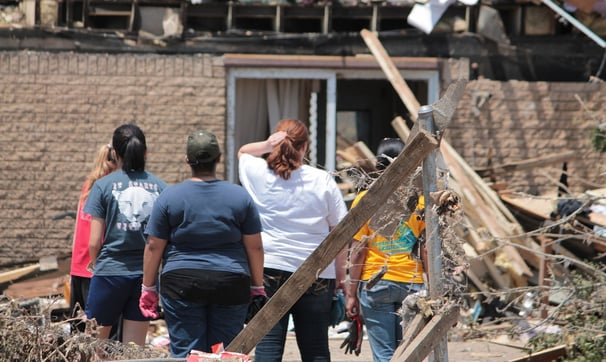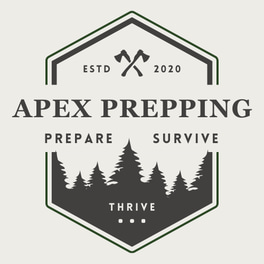Preparing for Natural Disasters: A Comprehensive Guide
COMMUNITYPREPPINGEDUCATION


Natural disasters are unpredictable and can strike at any time, causing devastation to communities, infrastructure, and the environment.
From earthquakes and hurricanes to floods and wildfires, these events can have a profound impact on our lives. The key to minimizing the impact of natural disasters is preparation. In this comprehensive guide, we will walk you through essential steps to help you and your loved ones stay safe and prepared in the face of natural calamities.
Know the Risks
The first step in preparing for natural disasters is understanding the risks specific to your region. Different areas are prone to different types of disasters. For example, coastal regions may be vulnerable to hurricanes and tsunamis, while regions near fault lines may face the risk of earthquakes. Research and consult local authorities or emergency management agencies to identify the potential hazards in your area.
Create a Family Emergency Plan
Developing a family emergency plan is crucial for ensuring everyone's safety during a disaster. Your plan should include:
Communication: Establish a communication network with family members, neighbors, and friends. Identify a common meeting place in case you get separated during the disaster.
Evacuation Routes: Familiarize yourself with the evacuation routes and procedures in your area. Plan how you will evacuate if necessary.
Emergency Contacts: Compile a list of emergency contacts, including local authorities, hospitals, and utility companies. Keep this list readily available.
Assemble an Emergency Kit
Prepare a well-stocked emergency kit that can sustain your family for at least three days. Your emergency kit should include:
Water: One gallon per person per day for drinking and sanitation.
Non-perishable Food: Canned goods, energy bars, and dried fruits that don't require cooking.
First Aid Supplies: Bandages, antiseptics, medications, and any specific medical supplies your family might need.
Flashlights and Batteries: Ensure you have a reliable light source for when the power goes out.
Personal Documents: Copies of identification, insurance policies, medical records, and other important documents in a waterproof container.
Clothing and Blankets: Extra clothes and blankets to keep you warm in case of exposure to the elements.
Secure Your Home
Take measures to make your home more disaster-resistant:
Reinforce Structures: If you live in an earthquake-prone area, consider retrofitting your home to withstand seismic activity.
Secure Furniture: Anchor heavy furniture and appliances to prevent them from toppling during earthquakes or hurricanes.
Trim Trees: Regularly trim trees and shrubs near your home to reduce the risk of damage from falling branches or debris.
Reinforce Doors and Windows: Install storm shutters or board up windows to protect against strong winds and flying debris during hurricanes.
Stay Informed
Stay informed about potential disasters through reliable sources such as the National Weather Service, local news channels, and emergency management agencies. Consider investing in a NOAA weather radio to receive real-time updates.
Practice Evacuation Drills
Regularly conduct evacuation drills with your family to ensure everyone knows the procedures and the designated meeting place. Practice different scenarios to be prepared for any situation.
Help Vulnerable Community Members
Reach out to neighbors who may need assistance during a disaster, such as the elderly, disabled, or those without transportation. Collaborate with local community organizations to establish support networks.
Conclusion
Being prepared for natural disasters is a responsibility that every individual and community should take seriously. By understanding the risks, creating a comprehensive emergency plan, assembling an emergency kit, securing your home, staying informed, and practicing evacuation drills, you can enhance your resilience in the face of adversity. Remember, preparedness can make a significant difference when a disaster strikes, saving lives and minimizing damage. Start your preparations today and be ready for whatever nature throws your way. Stay safe!
